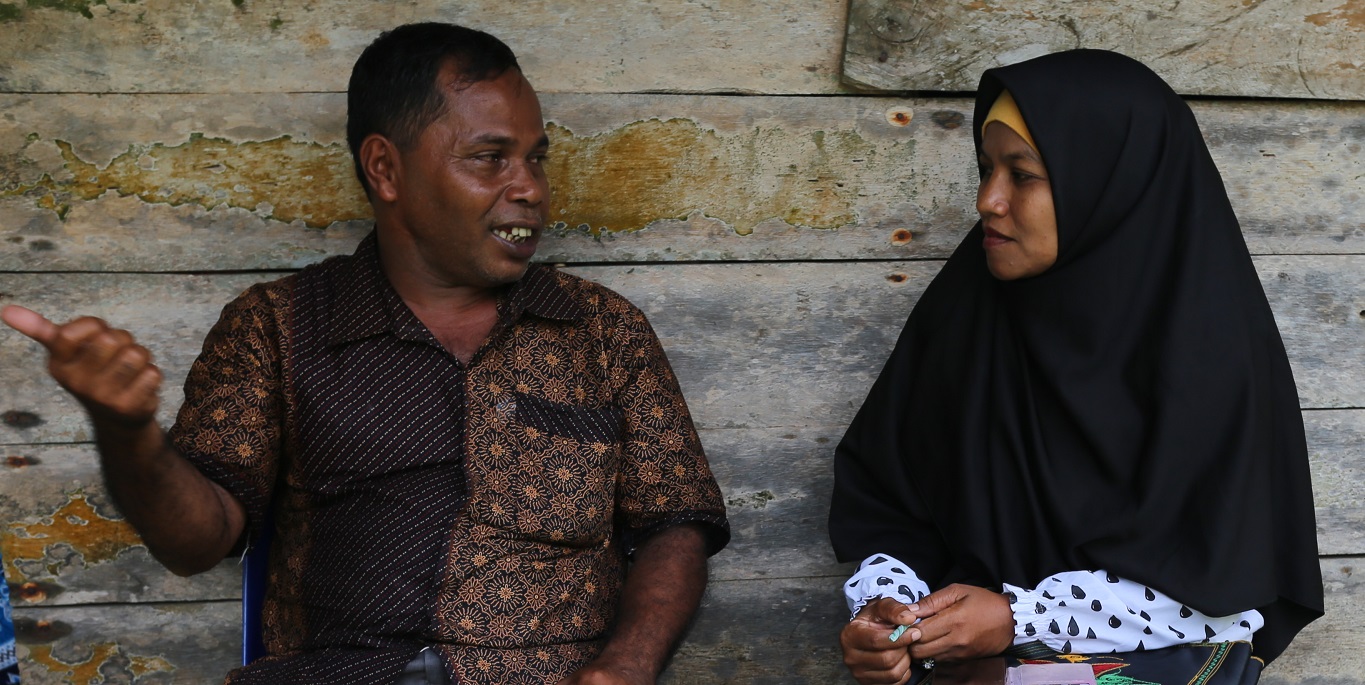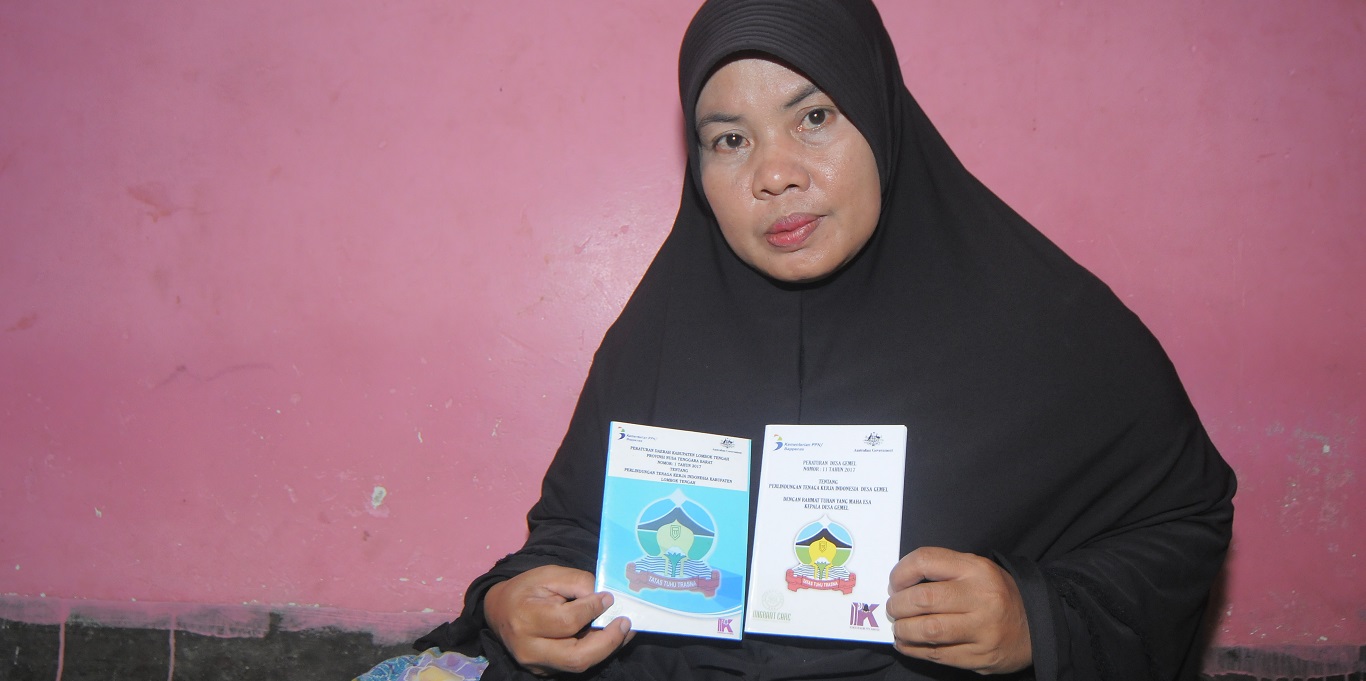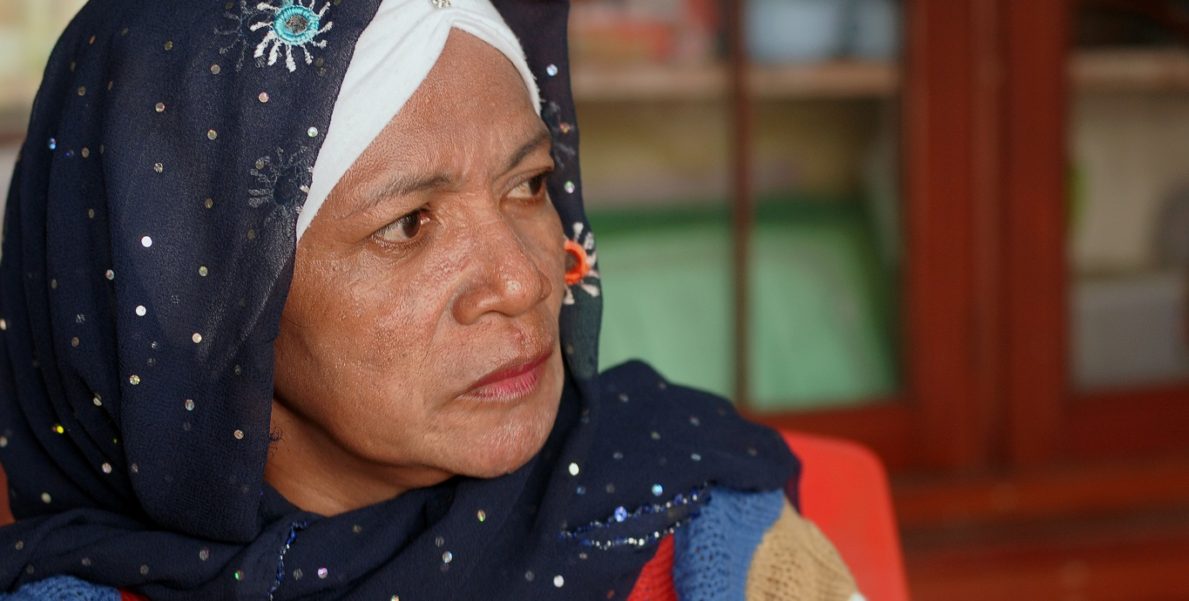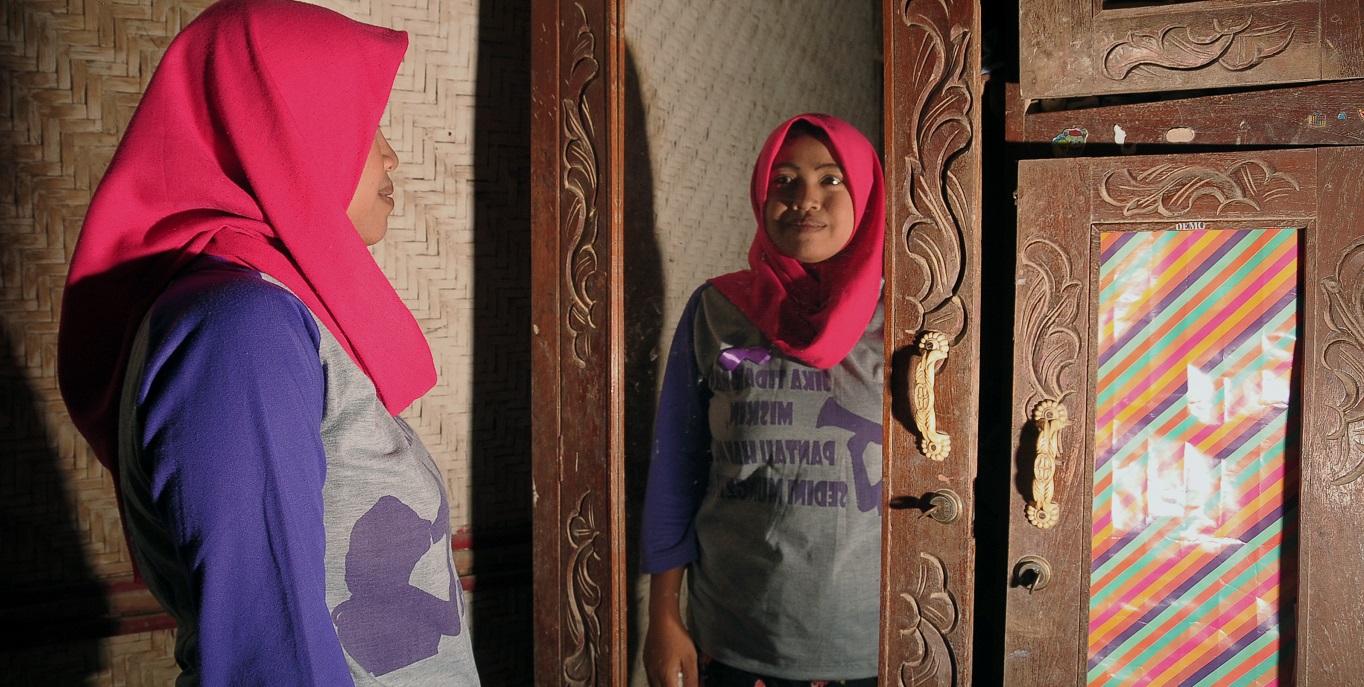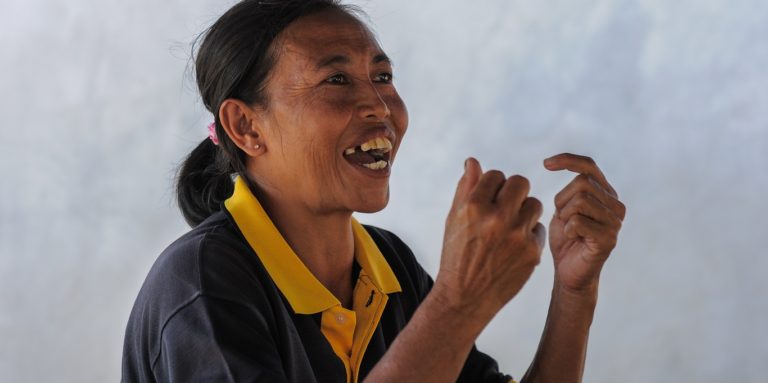Stories
Lisna Nasution, A Homeworker’s Path to Leadership
4 October 2018Penulis: admin

Lisna Nasution, a homeworker from Medan who works day to day peeling onions, has seen her life change after joining the homeworker network.
In 2015, Lisna along with her homeworker colleagues in North Sumatra formed the Sejahtera Homeworkers Union (SPR Sejahtera). As well as being appointed Secretary of the North Sumatra Regional Leadership Council of SPR Sejahtera, she was also tasked with recruiting members and acting as a facilitator of routine meetings between homeworkers.
In May 2018, Lisna’s journey with SPR Sejahtera went national. At this time labour unions from seven provinces: North Sumatra, DKI Jakarta, Banten, West Java, East Java, and Yogyakarta, gathered together in Medan to form the Indonesian Homeworkers Network (JPRI). After receiving the most votes, Lisna was chosen to become the chairperson of this network.
Lisna’s journey from peeling onions to becoming the Chairperson of JPRI, began in 2014. Diana Silalahi, field coordinator of BITRA Indonesia, MAMPU partner for improving employment conditions, invited Lisna to form a homeworkers group in her neighbourhood. Even though initially she refused, Diana did not lose hope.
“In the beginning, I asked Diana to invite my neighbour who also peels onions for a living, to take part instead. In the end, my neighbour and I both joined [the group] together,” recalled Lisna while laughing.
Diana had her own reasons as to why she was persistent in encouraging Lisna to organize the group of homeworkers. She was sure that Lisna had the potential to become a future leader of a homeworkers labor union.
“I saw that Lisna was a woman who knew almost all of the residents who lived near her home. She is also an honest and responsible person. When asked to complete a task, she always does it well,” explained Diana.
From the many activities that Lisna has taken part in, the most memorable for her was a training session regarding law and human rights, especially the one focused on homeworkers.
“It turns out that as human, we as homeworkers, also have rights, for example, [a fair] wage. Before we used to think, “Just accept your fate, the important thing is that you get paid each month,” remembered Lisna. Equipped with new knowledge, Lisna was able to secure a pay rise for her work peeling onions. Now she is paid 150 rupiah (AUD 0.01) per kilogram of onions, a 50 rupiah (AUD0.005) pay rise from her first year.
Taking Part in Designing Advocacy Strategies
Lisna has been involved in designing strategies for homeworker advocacy for a long time. In the beginning, Lisna took part in a ROCCIPI (Rule, Opportunity, Capacity, Communication, Interest, Process, and Ideology) session. The ROCCIPI is a problem identification instrument that is used to help form laws and regulations. From the 30 participants of this training, six people including Lisna were chosen to represent homeworkers in the drafting team that was preparing a bylaw regarding homeworkers in 2016.
Lisna, along with her homeworker colleagues, identified a number of problems that they faced in their work. Insufficient wages and the fact that homeworkers must provide their own tools were identified. Some jobs even require the workers to own expensive tools, for instance making toddler chairs requires the workers to have their own sewing machines; this puts a large burden on the home workers. The homeworkers also do not receive any health insurance from their employers, even though their work may present work health and safety issues.
“When weaving grills from wire, my friend injured her hand when she accidentally pierced herself with the wiring she was working with,” said Lisna.
Lisna has had similar experiences. In order to meet targets set by her agent, she often has to stay up all night working. The skin on her right hand has become calloused from peeling onions continuously. Homeworkers also have to deal with the onion waste that they produce. They must pay in order to have their rubbish picked up by garbage collectors, and therefore many of the homeworkers are forced to burn the waste in the yards of their houses. “The smoke disturbs our neighbors,” she added.
“If there was a Law, there will be the guarantee of protection and wellbeing of homeworkers,” explained Lisna, who works in the drafting team along with representatives of other stakeholder groups including civil society organizations, labor unions, the Municipal Representative of the Manpower Ministry, and legal aid organisations.
Now, as the chairperson of JPRI, Lisna’s responsibility has grown. Lisna remembers how shocked she was when she was first appointed to the position of chairperson.
“My heart was racing. But because my friends were encouraging me and promising to support me, I was optimistic. What is important for me is having a sincere heart, this will make our work easier,” concluded a smiling Lisna.



